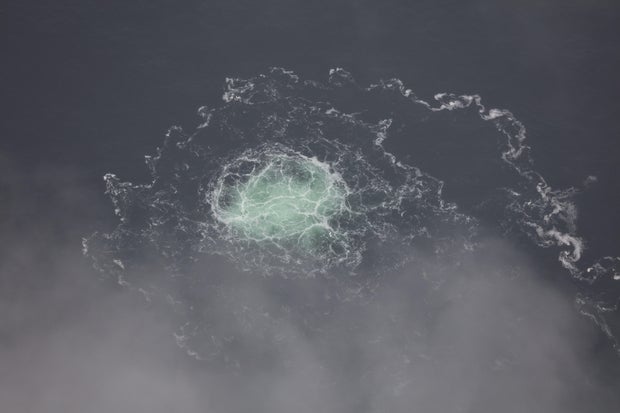German prosecutors have issued an arrest warrant for a Ukrainian man over the 2022 sabotage of the Nord Stream gas pipelines, German media reported Wednesday, with Polish prosecutors confirming they had received the warrant.
In the two years since the mysterious explosions hit the pipelines, speculation has been rife around who was responsible with Ukraine and Russia both vehemently denying any involvement.
But German media reported on Wednesday that a European arrest warrant had been requested for a Ukrainian man, a diving instructor whose last known address was in Poland.
The Polish prosecutor’s office told AFP it had received the warrant for a man named as “Volodymyr Z.” in June “in connection with proceedings against him in Germany.”
However, the man left for Ukraine at the beginning of July before he could be detained, it said.
German investigators believe the man was one of the divers who planted explosive devices on the Nord Stream pipelines, according to the ARD broadcaster and newspapers Die Zeit and the Sueddeutsche Zeitung.
They have also identified two more Ukrainians, a man and a woman who they believe acted as divers in the attacks and are believed to be a married couple who run a diving school in Ukraine, the reports said.
However, no arrest warrants have yet been issued for them.
Swedish coast guard
Different German media outlets reported Wednesday that they had reached Volodymyr Z. and the woman in question, who both denied any involvement.
The German federal prosecution service declined to comment when contacted by AFP.
German government spokesman Wolfgang Buechner also did not comment directly on the reports but stressed that German prosecutors’ “investigations are being carried out according to the law regardless of who is concerned and which results they lead to.”
Buechner told reporters at a press conference that the results of the probe “of course do not change anything about the fact that Russia is waging an illegal war of aggression against Ukraine.”
Polish prosecutors said the suspect had been able to leave Poland because German investigators did not “include him in the database of wanted persons.”
“The Polish Border Guard had no knowledge and no grounds for detaining Volodymyr Z.,” the prosecutor’s office told AFP.
Nord Stream’s two pipelines had been at the center of geopolitical tensions as Russia cut gas supplies to Europe in suspected retaliation for Western sanctions over Moscow’s invasion of Ukraine.
Four large gas leaks were discovered in September 2022 in the pipelines off the Danish island of Bornholm, with seismic institutes recording two underwater explosions just before.
While the leaks were in international waters, two were in Denmark’s exclusive economic zone and two in Sweden’s.
The pipelines were not in operation when the leaks occurred, but they still contained gas which spewed up to the surface and into the atmosphere.
The Ukrainian suspects are accused of transporting the explosives used in the attack in a sailing yacht called the Andromeda, according to the German media reports.
The same yacht was searched by German investigators in January 2023.
According to reports at the time, a team of five men and one woman chartered the yacht from Rostock port to carry out the operation.
In June 2023, Ukrainian President Volodymyr Zelenskyy insisted Kyiv knew nothing about any plan to blow up the pipelines.
As president he has the power to give orders, Zelenskyy said in an interview with Germany’s Bild daily.
“I did nothing like that. I would never do that,” he said.
Denmark, Sweden and Germany all opened investigations into the explosions.
However, Denmark and Sweden both closed their investigations earlier this year.
